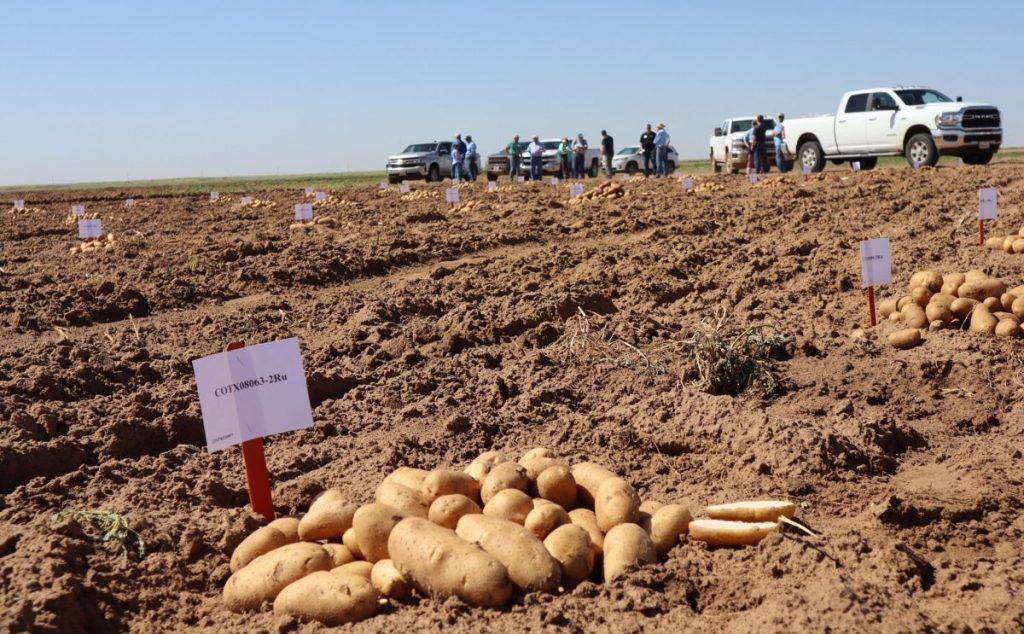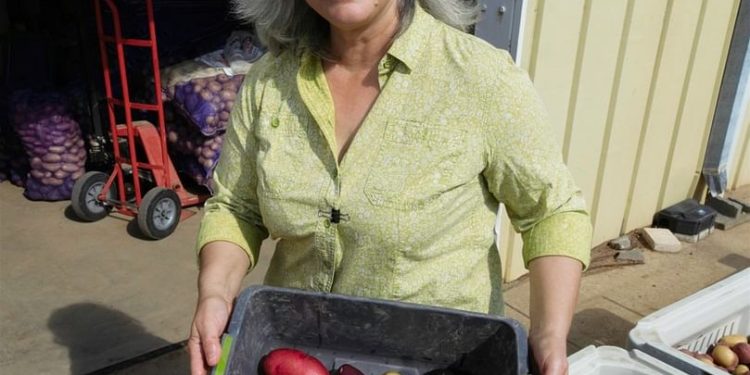#PotatoFarming #TexasA&MPotatoBreedingProgram #NationalPotatoExpo #AgriculturalInnovation #PotatoVarieties #SustainableAgriculture #SpecialtyPotatoes #GenomicSelection #NutritionalResearchPotatoIndustryTrends
Potato enthusiasts and agriculture professionals gathered at the National Potato Expo in Austin were treated to groundbreaking revelations from the Texas A&M Potato Breeding Program. Dr. Isabel Vales highlighted the program’s recent achievements, particularly the game-changing COTX08063-2Ru potato clone. This clone, capable of producing excellent french fries, thrives in the challenging Texan climate, opening new market opportunities for local producers.
The Expo showcased the Texas A&M Potato Breeding Program’s commitment to diversity, featuring 134 potato clones ranging from russets to chippers, reds, yellows, purples, smalls, and fingerlings. Vanguard Russet and Reveille Russet, known for their heat tolerance, excellent tuber appearance, and long dormancy, continue to stand out in the fresh market group.
Dr. Vales emphasized the potential replacements for popular varieties like Russet Norkotah, introducing COTX10080-2Ru, an exceptional russet variety with resistance to potato virus Y and late blight. However, she cautioned about its sensitivity to the herbicide metribuzin, highlighting the importance of considering all aspects in potato production.
The program’s dedication to innovation extends to specialty potatoes, with advanced clones boasting unique attributes like purple eyes, amethyst skin, and resistance to diseases. Dr. Vales expressed excitement about the specialty group’s potential expansion, especially varieties with added health benefits, such as high antioxidant levels, carotenoids, and minerals.

Beyond physical attributes, the Texas A&M Potato Breeding Program delves into improving nutritional quality. Studies exploring tuber-bound free amino acids and mineral content aim to enhance the nutritional value and processing quality of potatoes. Researchers utilize advanced techniques like Raman spectroscopy to detect chemical differences between tubers grown under normal and heat-stress conditions, offering valuable insights for future breeding efforts.
The application of genomic selection in tetraploid chipping potatoes showcases the program’s commitment to cutting-edge research. This approach enables breeders to predict and select traits that contribute to high chip quality, specific gravity, dry matter, and yield, benefiting both growers and consumers.
As the potato industry witnesses a wave of innovation, the Texas A&M Potato Breeding Program emerges as a leader, paving the way for sustainable and resilient potato farming practices. The National Potato Expo not only celebrates these achievements but also sparks discussions on the future of potato cultivation, highlighting the crucial intersection of science, agriculture, and culinary delight.
The National Potato Expo in Austin unveiled Texas’s groundbreaking contributions to potato farming, with the Texas A&M Potato Breeding Program at the forefront of innovation. From heat-tolerant varieties to disease-resistant clones and specialty potatoes with added health benefits, the program’s diverse offerings promise a sustainable and exciting future for potato cultivation. As the industry embraces technological advancements and nutritional research, the Texas A&M Potato Breeding Program stands as a beacon of progress, shaping the landscape of potato farming for years to come.







